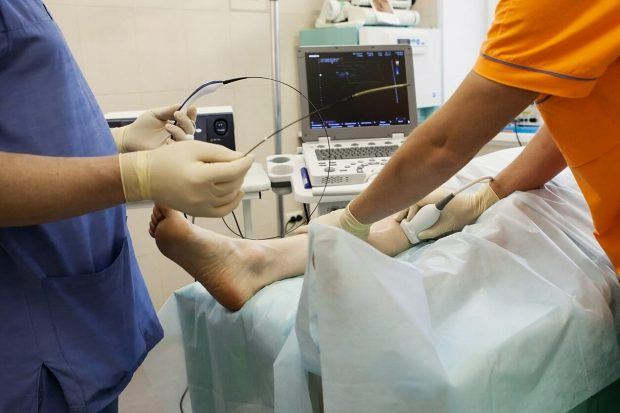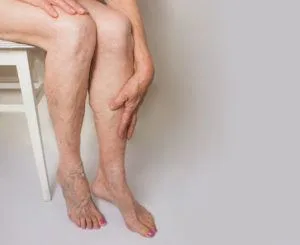Varicose veins are a common condition that can cause pain, swelling, and other symptoms if left untreated. Fortunately, there are many treatment options available that can help reduce or eliminate these symptoms. If you are experiencing any of the symptoms of varicose veins, be sure to speak with your doctor about the best treatment options for you. Untreated varicose veins can lead to more serious health problems, so it is important to seek treatment as soon as possible. Longevity Live Paid Content.
What are varicose veins?
Varicose veins are a very common condition, affecting up to one in four adults in the United States. Varicose veins are veins that have become enlarged and twisted. Typically, they occur in the legs and can be seen through the skin. They may be blue or dark purple and are often accompanied by swelling.
Varicose veins are a common condition, impacting up to one in three adults. Although they are usually harmless, they can sometimes cause pain and other symptoms.
In severe cases, they can lead to ulcers or blood clots. For these reasons, it’s critical to see a doctor if you notice any changes in your veins. With early diagnosis and treatment, you can reduce your risk of developing these complications. Varicose veins are generally treated with lifestyle changes, such as exercise and weight loss. In some cases, surgery may be necessary to remove the affected veins.
Treatment of varicose veins
There are a number of effective treatments available for varicose veins, ranging from lifestyle changes to medications and surgery.
If you are considering treatment for your varicose veins, it is critical to speak with your doctor to discuss all of your options and find the best treatment plan for you.
There are doctors all over the country who have access to minimally invasive treatments. A good Queens vein doctor can treat your varicose veins in less than 45 minutes!
Varicose veins are not just a cosmetic issue
Hyperpigmentation is a condition in which the skin around the varicose veins becomes discolored. This can be a cosmetic concern, but it can also lead to itching and irritation. In severe cases, hyperpigmentation can lead to permanent scarring.
If you have varicose veins, it is critical to see a doctor so that they can determine the best course of treatment. Untreated varicose veins can have serious consequences, so don’t delay in getting help.
 Do not leave them untreated
Do not leave them untreated
When varicose veins are left untreated, a condition known as lipodermatosclerosis can develop. This occurs when the fatty tissue underneath the skin hardens, causing the vein to become even more visible. In some cases, the skin around the vein can also become thin and brittle.
If the condition worsens, it can eventually lead to ulceration. Ulcers are open sores that can be painful and difficult to heal. In severe cases, ulcers can become infected and may require hospitalization. Varicose veins are best treated by a qualified medical professional to avoid complications such as lipodermatosclerosis.
Superficial thrombophlebitis is a condition in which a blood clot forms in a superficial vein. This can cause the vein to become inflamed and painful. Deep venous thrombosis is another potential complication of varicose veins. This is a condition in which a blood clot forms in a deep vein, usually in the leg. If left untreated, deep venous thrombosis can lead to pulmonary embolism, a potentially life-threatening condition in which the blood clot breaks free and travels to the lungs. As you can see, it is important to seek treatment for varicose veins to avoid these serious complications.
What happens to untreated varicose veins
Untreated varicose veins can lead to a number of serious complications. Perhaps the most dangerous is spontaneous bleeding. This occurs when the vein ruptures, causing blood to leak out into the surrounding tissue. This can cause severe bruising and pain, and in some cases may even require surgery to repair.
In addition, untreated varicose veins can also lead to blood clots, ulcers, and dermatitis. While not all of these complications are life-threatening, they can all be extremely painful and debilitating. As such, it is critical to seek treatment for varicose veins as soon as possible.
There are a number of treatment options available, both medical and surgical. However, there are also a number of lifestyle and home remedies that can help to improve the appearance of varicose veins and ease any associated symptoms.
Exercise is one of the best things you can do for varicose veins. Regular physical activity helps to promote circulation and prevent the pooling of blood in the veins. It is also essential to maintain a healthy weight, as excess weight puts additional pressure on the veins. Wearing loose-fitting clothing and avoiding sitting or standing for long periods of time can also help to reduce discomfort. Finally, elevating the legs above the level of the heart for 15 minutes several times per day can help to reduce swelling. These simple lifestyle changes can make a big difference in the appearance of varicose veins.
Conclusion
When it comes to medical treatment options available for varicose veins, there are several to choose from, including sclerotherapy, laser treatment, and catheter-based procedures using radiofrequency or laser energy. Sclerotherapy is a minimally invasive procedure that involves injecting a solution into the veins to collapse them.
Laser treatment uses high-intensity light to destroy the veins. Catheter-based procedures use radiofrequency or laser energy to heat and destroy the veins. The best treatment option for you will depend on the severity of your condition and your preferences. Talk to your doctor to learn more about your treatment options.



![women [longevity live]](https://longevitylive.com/wp-content/uploads/2020/01/photo-of-women-walking-down-the-street-1116984-100x100.jpg)










